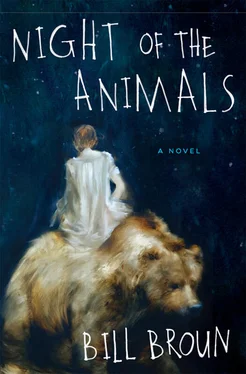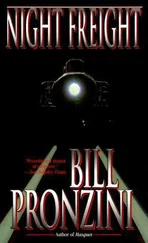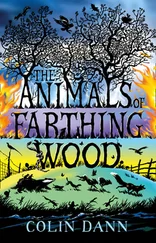She’d never lost her awe of the glimmering forest. It always resurrected itself. The disused hearths, after the Great War, quickly grew over with wild strawberry and strange fire moss with orange-tipped setae, as if the hearth’s embers, centuries old, still burned beneath. Wavy hairgrass, cowslip, and valerian took over the old barking brush-piles, and these became sites of badger runs and weasel dens. The Boogles were there, yes — it was their forest, and if you crossed them, they would bedevil the mind. Your next ramble into the forest for tinder might end with an adder biting your ankle. So you must tread with respect. This is what she’d been taught by her own grandfather when she herself was a little girl. When she spoke of the “mysterious mysteries” of the Wyre to Cuthbert and Drystan, she meant it not only as a serious admonition but as a bequest, too, of what to her was sacred knowledge, the Wonderments. She loved Wyre and its creatures, and she feared them, too.
THIRTY-FIVE YEARS AFTER CUTHBERT’S GRANDDADDY’S death, as the family sat socializing in the dark sitting room, Winefride found herself echoing, once again, the old sentiment about the “Boogles,” as she had with her daughter. This time she was warning her grandchildren as they contemplated a walk into the forest.
“Thee dunna want to hespel the Boogles,” Winefride was telling them. “There bist worse things in this world, but it’ll still be a mighty good job if you taks warnin’, chaps.”
“ Hespel ? That’s it, stop it, Mother,” Cuthbert and Drystan’s mum had answered. “Speak proper to these children, or they’ll grow up to be thieves living in Dudley. And poor. Or farmers.”
“An what’s wrong with farmers?” Gran had asked. “They inna any worse than the ewkins *in West Bromwich.”
“I want to see the Boogles,” Drystan had said that day. He was jiggling the front door’s knob, rocking on his heels, and nearly waking his sleeping great-uncle George. “And that magpie-sort goat.”
“Be good to that goat,” Granny said. “And stay out of the forest — or be careful. They’ve adders in there, little noodle-like ones, but adders no less.”
The two Birmingham boys obeyed their grandmother — at first. They bolted from the house but stopped almost immediately upon encountering the goat close-up. They stared in silence for a minute at the chewing, imperturbable goat. (“It’s a funny old goat,” Drystan kept saying. “Easily the best one I’ve ever seen.”) They carefully clambered over hedgerows and ran across a barley field and one of Bewdley’s many overgrazed pastures. They finally arrived at the sundrenched southeastern flank of the forest itself. Local children would have scampered right in, and they often did — but Cuthbert and Drystan, out of their West Brom world of street kickabouts and corner shops, dawdled. They’d just have a little look, but not enter the forest.
“Oooooooh, it’s really smashing,” said Drystan.
“It’s all right,” Cuthbert said glumly. “Can’t see much, not from here.”
A stand of very old oaks festooned with huge shriveled globes of gray-green mistletoe stood on the forest’s edge. It had been raining hard in recent days, yet there had been no relief from the high temperatures. The flora seemed scorched, raving with energy, subtropical. Yellowish liverwort with designs as filigreed as fine necklaces hung everywhere in strands. Regal stems of pinkish purple betony and Scottish thistle grew at the feet of the ancient trees. The shiny leaves of the oaks, enmeshed in striated sunbeams and swamped in golden light, gave the forest’s boundaries a kind of honeyed radiance.
Cuthbert leaned over and picked up a gnarled old black stick. For reasons one can hardly conceive, two condoms, uncurled but evidently unused, had been tied upon its end like ribbons of skin. Neither sibling knew what they were. Cuthbert pulled one of the condoms back and let it snap back.
“This is a good stick,” he said.
“Might do,” said Drystan. “Let me coppit for a second?”
Cuthbert handed it to him.
Drystan crouched down and began swinging the stick at imaginary monsters. He said, in a retro-pulp TV-announcer voice: “And Dan Dare lands the Anastasia on northern Venus, surrounded by artificial tornadoes hatched by the Treens. He hunches down, gripping his Uranium Melt Sword.” Cuthbert squealed with laughter, showing his gappy baby-toothed smile. “Now Dan Dare begins slashing at horrible gangs of dinosauroid warriors, lopping off their scaled fingers, then bashing the bulbous head of the Mekon until the evil creature spins off on his Floating Disc.”
Cuthbert clapped his hands. Just turned six, he was beyond the patty-cake stage of entertainment, but Drystan could still charm him to no end with utter ease.
Drystan swung a few more times. Little hums came off the stick as the latex flapped in the air.
“Blasted,” said Drystan, in a normal voice. “It’s a noice stick.” He gave it back to Cuthbert. “Coppit good, Cuddy. We may need that.”
Dryst seemed to have braved himself up.
“Let’s con quer,” he said.
Then he remembered. Their granny had said “The Boogles ’as more full of nabs and tricks than Owd Nick. And by gum, thee canna be top’over-tail maskered *an’ confused at your age. Dunna stay late thar. The animals — the owd ancient animals, thay come out.”
The forest before them looked gorgeous and intimidating; Cuthbert felt pulled in. The sun had hit its zenith, and it wouldn’t be dark for hours. Drystan was generally protective of his younger brother, but he couldn’t help reciting a story Gran had told him the night before in Birmingham.
“Cuddy, you know Granny said something once before, she said ’er own old aunt, Millie — she’s dead now, roight, Cuddy? — well, she had come down off those hills where they’re all from, the Clees or Clays or what, and Aunt Millie and what ’ad got lost in the forest. For three days .”
“Liar,” said Cuddy. “You’re ’aving a go at me.” He whipped the condom stick through the air.
“I’m not. When Millie finally came out, Aunt Millie, Granny said, well she was doolally — off her head or what — and she never got any different. She sat in a birch wood chair, like, for thirty years, petting her white cat. It’s the truth.”
Cuthbert looked down at his stick and used his thumbnail to scrape off some of its thin, green bark.
Drystan continued, “Aunt Millie would sometimes say that she was looking for leftover charcoal from the charcoal makers, but what she found was the King of Night. The King of Night. Bloody hell — that’s all the reason I need to go in there. It must have been one of the prehistoric lions. Or that Welsh tiger.”
“Or them Boogles,” Cuthbert said sternly (his upper lip trembling).
“All right,” said Drystan. “Let’s nip along, then.”
But they didn’t move. For a while, they nervously kicked at a dead log and shouted nonsense words to hear their echoes and swatted at red damselflies and at each other.
“Googa maga waga maga!” yelled Drystan.
“Biggle flix!” screamed Cuthbert.
“Maga maga!”
“Shite!” said Cuthbert, with tingling boy-laughter ringing from him in tiny bright bells.
“Boogles!” Drystan said. Then, in a derisive, squeaky old-lady voice, he added: “ Thee dunna want to hespel the Boogles.”
It was rare for Drystan to show disrespect for their gran, but a spectral excitement combined with a prepubescent wildness had momentarily gripped him. Cuthbert frowned at him.
Читать дальше












